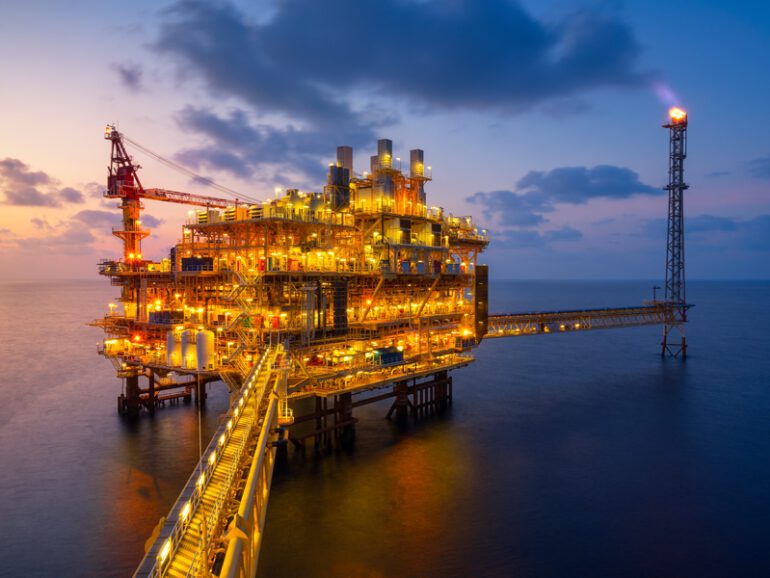TL;DR:
- The oil and gas industry is undergoing a significant digital transformation.
- Machine Learning (ML) and Artificial Intelligence (AI) are leading the charge.
- Transforming exploration, production, distribution for efficiency and cost savings.
- Big data analytics and predictive analytics driving risk reduction.
- Automation, predictive maintenance, and optimized supply flows improve operational efficiency.
- AI-powered systems are enhancing health, safety, and sustainability.
- ML and AI are bridging workforce challenges and creating new roles.
- Companies are advised to start with small pilot projects and consider specialized AI partnerships.
Main AI News:
The oil and gas industry finds itself at the forefront of a momentous digital revolution, and at the helm of this transformation are Machine Learning (ML) and Artificial Intelligence (AI). These cutting-edge technologies are reshaping multiple facets of the sector, from the initial stages of exploration and production, right through to distribution. The result? A landscape characterized by enhanced efficiency, substantial cost reductions, and an unyielding competitive edge.
Big Data Analytics and Predictive Analytics
Central to this digital metamorphosis is the pivotal role of big data analytics. It serves as the bedrock upon which companies can unearth invaluable insights from vast and intricate datasets. This, in turn, becomes a potent tool in the arsenal for risk mitigation. Moreover, predictive analytics emerges as a game-changing force, propelling the industry towards the identification of untapped resources, pre-emptive measures against equipment breakdowns, and the streamlining of supply chains.
Operational Efficiency and Sustainability
In this new era, operational efficiency takes a monumental leap forward, driven by the automation of essential tasks, predictive maintenance schedules, and the optimization of supply chains. These advancements culminate in substantial cost savings and the preservation of jobs. Notably, AI-powered monitoring systems fortify the industry’s commitment to health, safety, and environmental performance, effectively mitigating risks and elevating sustainability standards.
Addressing Workforce Challenges
The industry grapples with challenges such as an aging workforce and skill gaps; however, ML and AI technologies come to the rescue by augmenting the capabilities of the existing workforce. Simultaneously, a new realm of opportunities emerges, with roles in data science and analytics taking center stage. For companies looking to embark on their digital journey, the strategic approach begins with modest pilot projects, eventually scaling up operations. Collaborations with specialized AI firms are a recommended avenue to expedite growth and ensure success.
Inescapably, the future prosperity of the oil and gas sector hinges on its wholehearted embrace of these transformative technologies. The path forward promises safety, sustainability, and operational efficiency. As the industry continues its digital voyage, it stands poised to reap unprecedented rewards, ultimately setting a precedent for other sectors to emulate.
Conclusion:
The integration of Machine Learning and Artificial Intelligence in the oil and gas industry signifies a profound digital transformation. This shift towards automation, data-driven decision-making, and sustainability is positioning the industry for enhanced competitiveness and profitability. Companies that leverage these advanced technologies effectively will not only survive but set a benchmark for other sectors to follow in the era of digitalization.

